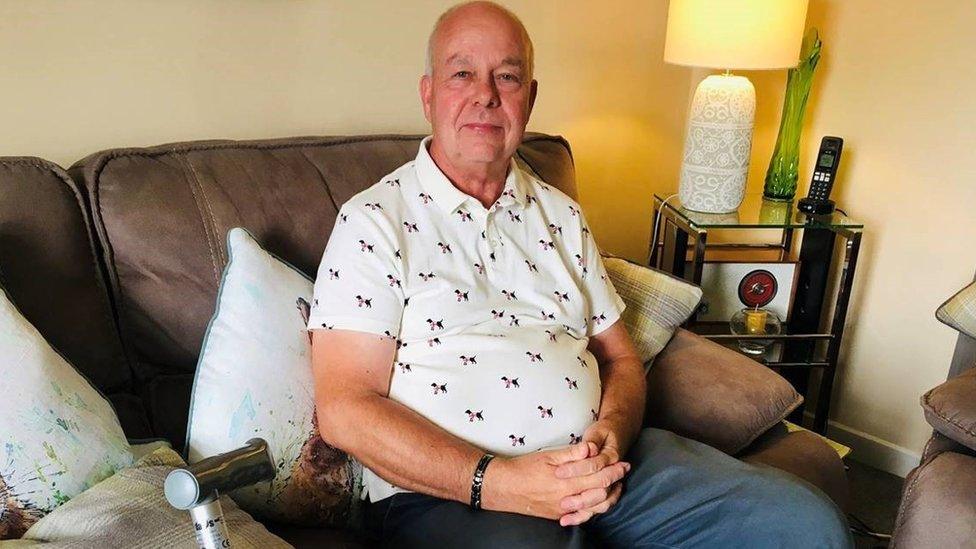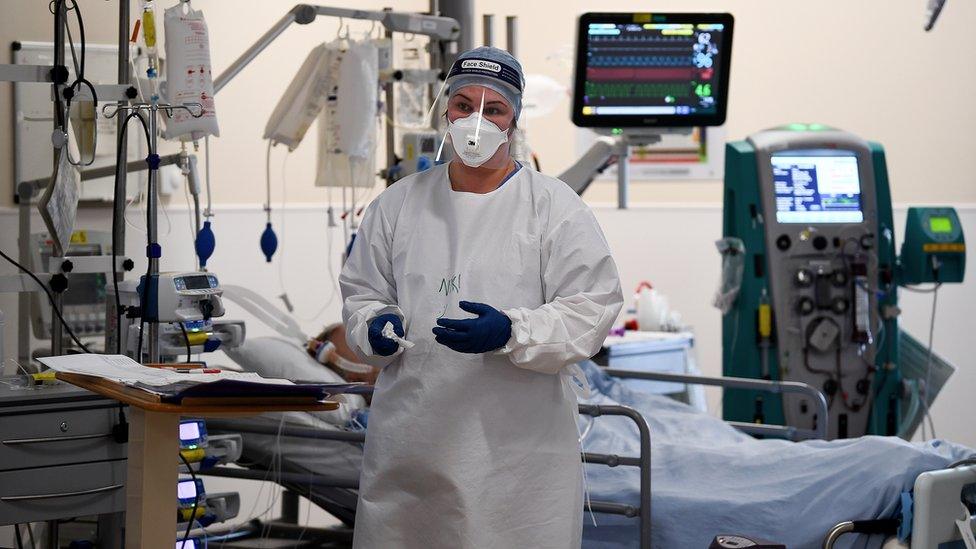I've waited three years to have my knees replaced
- Published

Mick Moloney has been waiting three years for knee surgery and feels "a bit forgotten".
The 64-year-old, from Boyndie in Aberdeenshire, says he needs to undergo a knee replacement on his left leg, and once that heals will require similar surgery on his right knee.
Latest figures have shown that almost 400,000 people were waiting to see an NHS specialist for an outpatient appointment at the end of June.
Mick used to be very active - but says everything has now "come to a standstill".
"I did lots of gardening, I was a very keen dog walker, maybe 10 miles a day, just generally always on the go," he says.
"The dog walking has stopped, the gardening is much more limited, you can't just go at it all day long.
"My life has just been changed dramatically. You plan around pain."
The pain makes sleeping difficult, so Mick wakes up tired.
"It changes your life completely," he adds.
"It's a constant ache. You end up walking badly. It's a complete nightmare.
"I know Covid has taken over the world, but there's me and many thousands like me just going backwards."

New figures from Public Health Scotland, external have revealed that a record high of almost 400,000 people were waiting to see an NHS specialist for an outpatient appointment at the end of June.
There was a growth in NHS activity in the three months to the end of June - but the number of patients seen was still well down on the 2019 average.
Almost half of the people on the list had been waiting longer than 12 weeks for a hospital appointment.
One in 12 had been waiting for more than a year.
The statistics show:
286,707 patients were seen by specialists across NHS Scotland in the three months to the end of June
This was a 10.8% increase on the previous quarter
But the figure for June 2021 was 22% lower than the quarterly average during 2019, prior to the Covid pandemic
At 30 June 2021, 396,771 were waiting to be seen.
This is 48.4% (+129,489) higher than at 30 June 2020 when the list size was abnormally low, partly due to a significant drop in referrals
The June 2021 figure is 28.5% (+87,884) higher than the average for 2019
Of those waiting, 53.1% had been waiting 12 weeks or less - markedly down on the 73.4% average reported in 2019
The number waiting more than a year has decreased to 8.8% (35,016)
But the number waiting 33-51 weeks increased to 10.8% (15,285)


This is not simply about clearing the backlog of work created by the pandemic. It reflects the immense strain on the NHS now.
Covid patients are fewer in number but they still occupy beds that could be used to treat other conditions. Staff have to be redeployed, and wards closed to new admissions. It only takes a few people off sick or isolating, for a whole day of cataract operations or hip replacements to be cancelled.
Health boards are limping on, doing what they can, but the reality is that hospitals are struggling to cope with demand, and non-urgent treatments are the first to go.
With every day spent on a waiting list, each one of these 400,000 people could become sicker, or develop complications, or require additional support. So every delay in starting their treatment puts an even greater burden on the NHS as time goes on.
